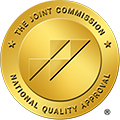Legitimate use is limited to short courses—often 2 days to 4 weeks—yet many people discover that Ambien’s calming, euphoric after‑effects tempt them to take more than prescribed or to continue refilling the drug long after insomnia has lifted. When taken at higher doses, crushed and inhaled, or combined with alcohol or opioids, zolpidem’s disinhibiting properties can produce dream‑like states, memory “blackouts,” and, eventually, addiction.
How Ambien Addiction Develops
- Tolerance. After only 2–3 weeks of nightly use, the brain adjusts to zolpidem’s GABA‑boosting effects. The original 5–10 mg dose no longer brings sleep as quickly, so the user begins to double or “top up” doses, or takes the pill earlier in the evening.
- Neuroadaptation. GABA receptors down‑regulate, and excitatory glutamate up‑regulates to maintain equilibrium. Stopping suddenly now jolts the brain into a hyper‑aroused state—classic withdrawal.
- Psychological conditioning. Users associate Ambien with stress relief, emotional escape, and partial amnesia. Soon, insomnia is no longer the only trigger; any anxiety, social event, or painful memory can set off cravings.
- Compulsive use. Doctor‑shopping, forging refills, or ordering from illicit online pharmacies replace legitimate prescriptions. At this stage, professional treatment is essential to break the cycle.
Signs and Symptoms of Ambien Abuse
| Physical | Cognitive / Behavioral | Emotional / Social |
|---|---|---|
| Morning grogginess or “Ambien hangover” | Anterograde amnesia (“can’t remember last night”) | Irritability or mood swings |
| Unsteady gait, frequent falls | Sleep walking, cooking or driving while asleep | Isolation, cancelling plans |
| Slurred speech | Taking pills hours before bedtime | Defensiveness about prescriptions |
| Gastrointestinal pain, nausea | Doctor‑shopping for multiple scripts | Decline in work or school performance |
Left unchecked, abuse escalates rapidly, increasing the risk of overdose, injury, and dual addiction to alcohol or opioids.
The Dangers of Long‑Term Ambien Use
- Cognitive deficits. Studies show verbal memory, attention span, and psychomotor speed decline after months of misuse, sometimes persisting for a year or more even after quitting.
- Respiratory depression. In higher‑than‑therapeutic doses or when combined with alcohol/benzos, Ambien can slow breathing to dangerous levels.
- Complex sleep behaviors. Sleep‑driving, accidents, fire hazards from cooking while asleep, and aggression toward others have all been documented.
- Rebound insomnia & anxiety. Ironically, many long‑term users sleep worse without the drug, fuelling relapse risk.
- Overdose. Although rarely fatal alone, zolpidem multiplies the depressant effect of alcohol, fentanyl, or oxycodone—chief contributors to polysubstance overdoses in Georgia.
Withdrawal Symptoms and Timeline for Ambien
| Time Since Last Dose | Typical Symptoms |
|---|---|
| 6–12 hours | Anxiety, restlessness, sweating, tremor, rebound insomnia |
| 24–48 hours | Heart palpitations, elevated blood pressure, nausea, irritability, intense cravings |
| 48–72 hours | Possible seizures, vivid nightmares, perceptual disturbances, muscle pain |
| 3–10 days | Fluctuating mood, “brain fog,” gastrointestinal upset, and rebound insomnia |
| Weeks 2–4 (PAWS) | Intermittent anxiety, fatigue, dysphoria, impaired concentration |
Because seizures and delirium can emerge, especially at very high doses or with polysubstance use, medical detox is strongly recommended.
Why Professional Treatment Is Essential for Ambien Addiction
- Medically supervised tapering or cross‑titration. Physicians may use a longer‑acting benzodiazepine or anticonvulsant to prevent seizures while gently reducing GABA dependence.
- Craving management. Non‑addictive sleep aids (trazodone, doxepin), melatonin agonists, or alpha‑2 agonists can ease rebound insomnia.
- Behavioral therapies. Cognitive Behavioral Therapy for Insomnia (CBT‑I) plus addiction‑focused CBT and Dialectical Behavior Therapy (DBT) retrain sleep hygiene, emotion regulation, and relapse‑proof thinking.
- Accountability and support. Daily check‑ins, toxicology screening, and peer groups reduce isolation and catch slips early.
Ambien Addiction Treatment Options in Atlanta, GA
- Medical Drug Detox. Clients visit our clinic for vitals, doctor consults, and medication adjustments while sleeping in their own bed each night.
- Withdrawal Management. We tailor a taper schedule and intervene immediately if complications arise.
- Guided Recovery Planning. Certified addiction counselors build a long‑term roadmap: therapy schedule, support‑group linkage, vocational assistance, and relapse‑prevention skills.
Therapies Used in Ambien Addiction Recovery
- Cognitive Behavioral Therapy (CBT). Targets negative sleep and drug‑use beliefs (“I can’t sleep without a pill”) and replaces them with adaptive thoughts and behaviors.
- Dialectical Behavior Therapy (DBT). Builds distress‑tolerance and emotional‑regulation muscles—vital when nighttime cravings or anxiety strike.
- Individual Therapy. One‑on‑one sessions uncover trauma, co‑occurring depression, or anxiety driving insomnia and substance use.
- Group Therapy. Facilitated peer sessions normalize challenges, practice interpersonal skills, and offer real‑time feedback.
The Importance of Aftercare and Relapse Prevention
- Relapse‑prevention coaching. Clients practice stimulus‑control, sleep‑restriction, and relaxation techniques until they are automatic.
- Medication management. Non‑addictive sleep aids or anti‑anxiety prescriptions are maintained and adjusted.
- Family education. Loved ones learn to spot early warning signs and support healthy sleep routines instead of enabling pill use.
Why Choose Georgia Sky Outpatient Detox for Ambien Treatment
Flexible schedules. Early‑morning and after‑work session blocks accommodate busy professionals, students, and caregivers.
Whole‑person care. On‑site nutrition consults, yoga‑for‑sleep workshops, and mindfulness‑based stress reduction complement medical detox.
Privacy and dignity. Discreet Midtown clinic entrance, HIPAA‑compliant telehealth, and optional anonymous peer groups protect your reputation while you heal.
Insurance‑friendly. We are in‑network with most commercial insurers and offer transparent, all‑inclusive self‑pay packages—no surprise lab or “facility” fees.
Contact Georgia Sky Outpatient Detox for Ambien Addiction Help
Take the first step toward restorative, drug‑free sleep today. Reach out, and let Georgia Sky guide you safely from withdrawal to long‑term wellness.




